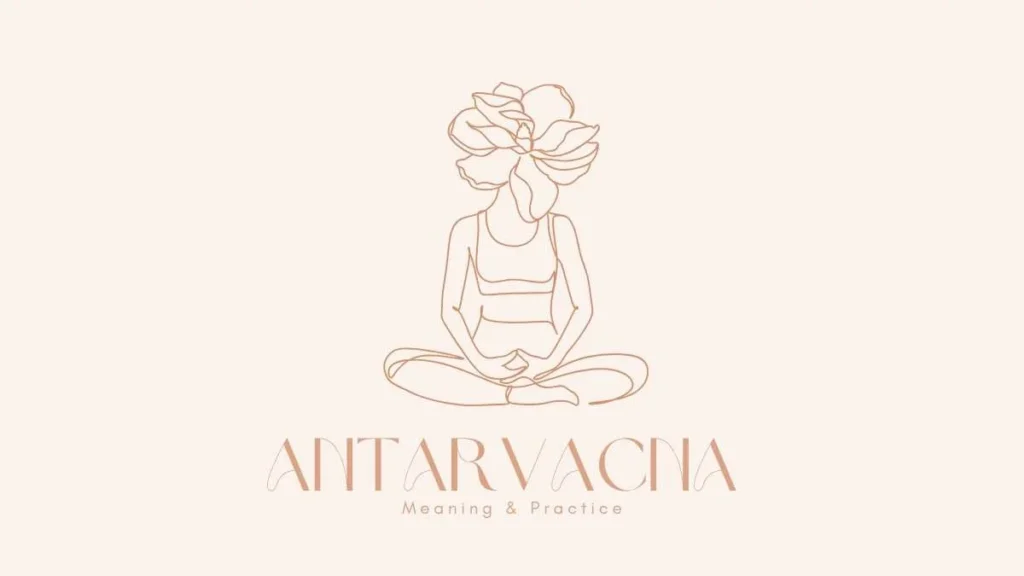HEALTH AND FITNESS
Antarvacna: The Art of Listening to Your Inner Voice

Antarvacna, derived from the Sanskrit words antar (inner) and vacna (speech), translates to “inner voice” or “internal dialogue.” It is a profound practice of actively listening to and engaging with one’s thoughts and emotions. Far from being an abstract spiritual idea, antarvacna is a practical skill that blends ancient wisdom with modern psychological insight.
Rooted deeply in Hindu and Buddhist traditions, antarvacna places mindful introspection at the center of self-development. It encourages individuals to become both the speaker and the listener of their inner world, cultivating a state of heightened self-awareness, emotional clarity, and inner balance. Unlike passive meditation, Self-Reflection invites a dialogue with the self, active questioning, reflecting, and responding internally.
Table of Contents
Origins and Cultural Roots
Antarvacna finds its earliest expressions in ancient Hindu and Buddhist scriptures, where inner dialogue was seen as an essential part of spiritual growth.
In Hindu philosophy, particularly in the Upanishads, sages spoke of the antarātman, the inner self, and encouraged seekers to question the nature of reality through introspective thought. The inner voice was considered a bridge between the transient world and eternal truth, guiding individuals toward dharma (righteous action).
Similarly, in Buddhist teachings, mindful awareness (sati) and self-inquiry are key practices. The Buddha often encouraged followers to examine their minds, asking questions like: “What is this thought? Where does it arise? Does it lead to suffering or liberation?” This process mirrors Self-Reflection’s active engagement with internal speech.
The Philosophy Behind Inner Voice Practice
Unlike passive meditation, where one may observe thoughts without judgment, it takes a more participatory role. It is built on the idea that the mind is both the questioner and the questioned.
This approach serves several philosophical purposes:
- Self-Awareness as Liberation: Knowing oneself deeply is seen as the first step to personal freedom. By questioning your thoughts, you can identify unconscious beliefs and emotional patterns that influence behavior.
- Values-Driven Decision Making: Antarvacna aligns decisions with one’s core values, rather than fleeting emotions or external pressures.
- Integration of Thought and Emotion: Instead of suppressing feelings, emotional clarity exercises understanding them, leading to healthier emotional regulation.
Antarvacna vs. Passive Meditation
While both meditation and Antarvacna aim to cultivate mindfulness, their methods differ:
| Aspect | Antarvacna | Passive Meditation |
| Engagement Level | Active questioning and dialogue with oneself | Silent observation without interference |
| Goal | Self-understanding, clarity, and values-driven decisions | Presence, calmness, reduction of mental chatter |
| Role of Thoughts | Explored, analyzed, and understood | Observed and allowed to pass |
| Outcome | Insights and actionable self-awareness | Inner stillness and detachment from thoughts |
Benefits of Inner Voice Practice
1. Enhanced Emotional Intelligence
Regularly engaging with your internal dialogue allows you to name and understand emotions as they arise. This emotional literacy improves empathy and interpersonal relationships.

2. Clarity in Decision-Making
When faced with complex choices, it helps filter out societal expectations and impulsive urges, allowing you to act in alignment with your true priorities.
3. Stress Reduction
By addressing internal conflicts directly, you prevent them from accumulating into chronic stress. Self-dialogue transforms mental clutter into structured insight.
Practical Techniques for Self-Reflection
You don’t need a meditation cushion or a retreat to begin practicing antarvacna, just a willingness to pause and converse with yourself. Here are practical methods:
1. The Question-Response Method
Choose a quiet moment and ask yourself open-ended questions:
- “What am I feeling right now?”
- “Why did I react that way?”
- “Is this belief helping or limiting me?”
Write down your responses to deepen your reflection.
2. Thought Journaling
Maintain a dedicated journal for inner conversations. Treat it like a dialogue, using “Q” for your questions and “A” for your responses. Over time, patterns will emerge.
3. Guided Self-Inquiry
Use prompts from philosophical texts, therapy frameworks, or mindfulness guides to structure your internal dialogue.
Integrating Self-Reflection into Modern Life
Even in today’s busy schedules, antarvacna can be woven into daily life:
- Morning Check-Ins: Begin the day by asking, “What matters most for me today?”
- Pre-Decision Pause: Before making significant choices, pause for a brief inner dialogue.
- End-of-Day Reflection: Review your actions and emotions to identify what aligned with your values and what didn’t.
- Digital Mindfulness: Limit external noise by setting device-free times, allowing space for internal conversation.

FAQS
Is antarvacna the same as self-talk?
No, it is a mindful and intentional form of self-dialogue, unlike casual or unconscious self-talk.
Can antarvacna help with decision-making?
Yes, by aligning your choices with personal values, antarvacna can improve clarity and confidence in decision-making.
How often should I practice antarvacna?
Consistency matters more than duration; daily or regular sessions, even for a few minutes, can be effective.
Final Words
Antarvacna is not about silencing the mind; it’s about befriending it. In becoming both the speaker and the listener, you develop a relationship with yourself based on curiosity, honesty, and compassion.
By making space for this inner conversation, you reclaim your mental landscape from the constant noise of the outside world. Whether rooted in ancient spiritual traditions or practiced as a modern self-development tool, it offers a path toward greater clarity, emotional balance, and authentic living.
-

 FRIENDSHIP MESSAGES5 months ago
FRIENDSHIP MESSAGES5 months ago100+ Heart Touching Sorry Messages for Friends
-

 ANNIVERSARY WISHES8 months ago
ANNIVERSARY WISHES8 months ago100+ Beautiful Engagement Anniversary Wishes Messages and Quotes
-

 BIRTHDAY WISHES8 months ago
BIRTHDAY WISHES8 months ago300+ Happy Birthday Wishes for Brother | Heart Touching Happy Birthday Brother
-

 BIRTHDAY WISHES8 months ago
BIRTHDAY WISHES8 months ago200+ Unique Birthday Wishes for Your Best Friend to Impress on Their Big Day




















